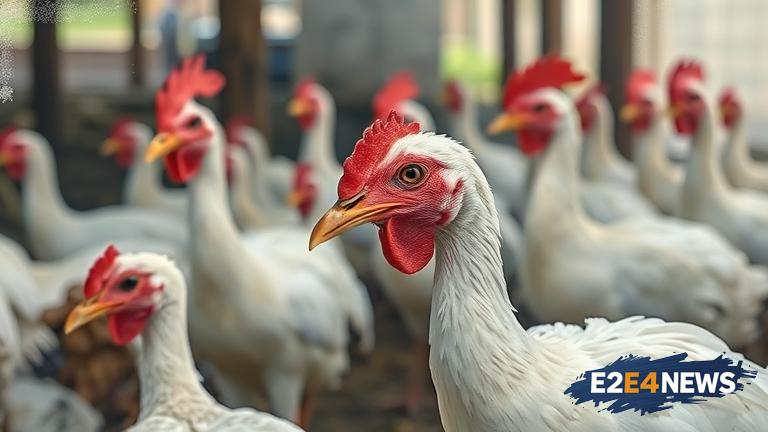The Thai government has issued a high alert for avian flu, also known as bird flu, following reports of outbreaks in several provinces. The disease, which can be deadly to humans, has prompted authorities to take swift action to prevent its spread. The Ministry of Public Health has confirmed that the H5N1 subtype of the virus has been detected in poultry in multiple areas, leading to the culling of thousands of birds. The government has also established a task force to oversee the response to the outbreak, comprising representatives from various ministries and agencies. The task force will work to identify the source of the outbreak, contain its spread, and provide support to affected farmers. In addition to the culling of infected birds, authorities are also conducting widespread testing of poultry and implementing enhanced biosecurity measures on farms. The public has been advised to take precautions when handling poultry and to report any suspicious symptoms to the authorities immediately. The Ministry of Agriculture and Cooperatives has also announced plans to vaccinate poultry against the H5N1 virus, in an effort to prevent further outbreaks. Meanwhile, the Ministry of Commerce has assured the public that the outbreak will not affect the supply of chicken and eggs, as the country has sufficient stocks to meet demand. The World Health Organization (WHO) has been informed of the outbreak, and Thai authorities are working closely with international partners to share information and best practices. The avian flu outbreak has also raised concerns about the potential for transmission to humans, with the Ministry of Public Health urging people to take precautions when handling poultry or coming into contact with potentially infected birds. The government has also established a hotline for people to report any suspected cases of avian flu, and has assured the public that it is taking all necessary measures to prevent the spread of the disease. In recent years, Thailand has experienced several outbreaks of avian flu, resulting in significant economic losses for the poultry industry. The government has therefore taken a proactive approach to addressing the current outbreak, with the aim of minimizing its impact on the industry and protecting public health. The Ministry of Public Health has also announced plans to conduct regular testing of people who have come into contact with infected birds, in order to quickly identify and respond to any potential cases of transmission. The government has also provided guidance to farmers on how to prevent the spread of the disease, including the use of personal protective equipment and the implementation of enhanced biosecurity measures. Furthermore, the Ministry of Education has announced plans to educate schoolchildren about the risks of avian flu and the importance of taking precautions when handling poultry. The public has been urged to remain vigilant and to report any suspicious symptoms to the authorities immediately, in order to prevent the spread of the disease. The government has also assured the public that it is working closely with international partners to share information and best practices, and to ensure that the country is prepared to respond to any potential outbreaks. The avian flu outbreak has also highlighted the need for increased awareness and education about the risks of zoonotic diseases, which can be transmitted from animals to humans. The government has therefore announced plans to launch a public awareness campaign, aimed at educating people about the risks of avian flu and the importance of taking precautions when handling poultry. Overall, the Thai government is taking a proactive and comprehensive approach to addressing the avian flu outbreak, with the aim of protecting public health and minimizing the impact on the poultry industry.





